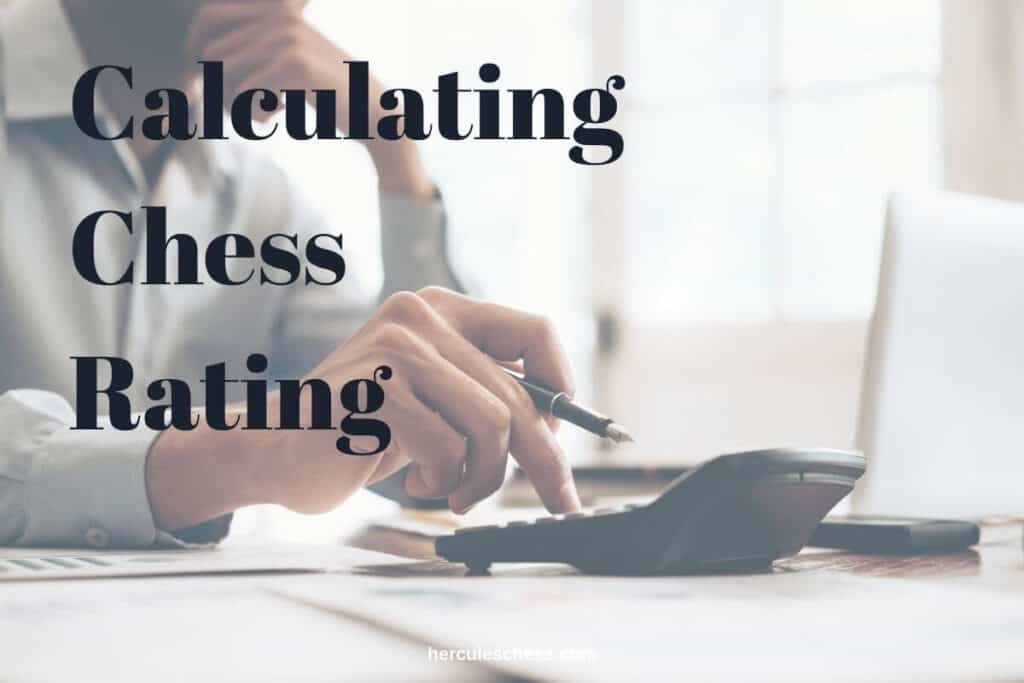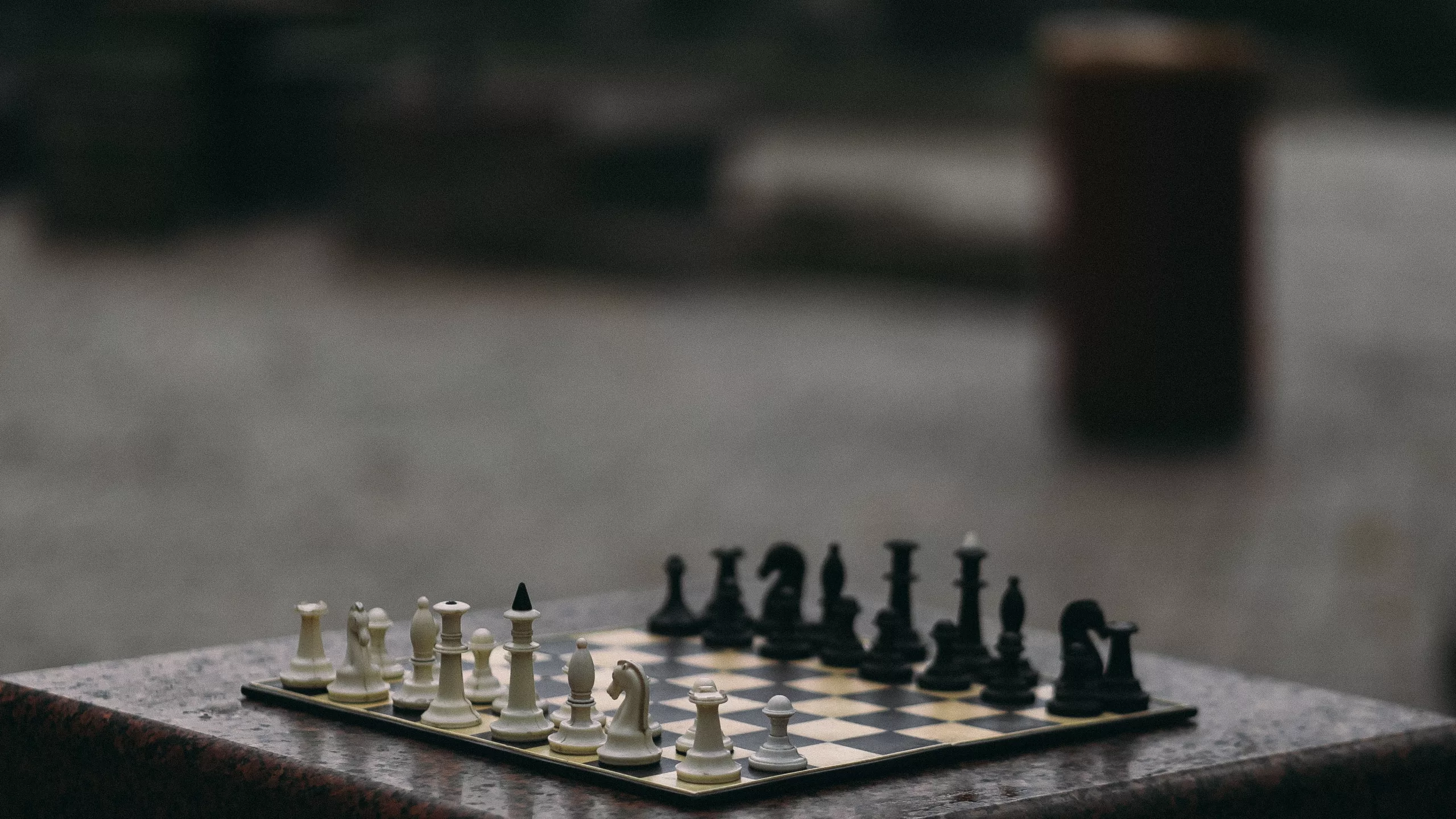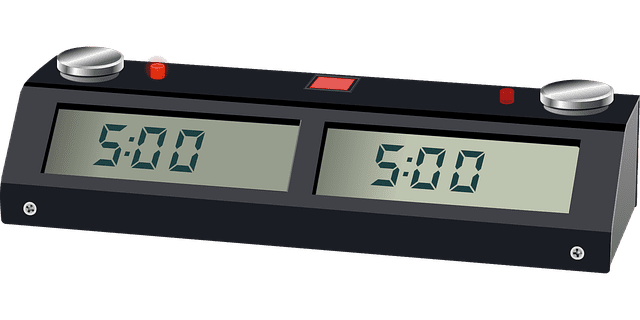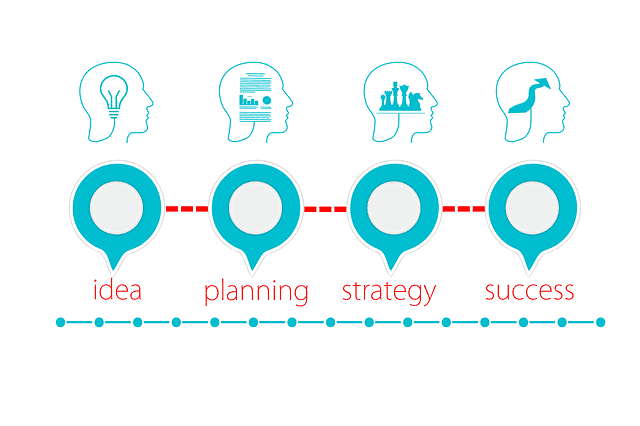Chess players gain rating points when they win games, and lose rating points when they lose games. But how exactly are these points calculated? Well, according to the USCF Official Rules of Chess, “The rating system is based on the theory that the rating difference between two players corresponds to their expected score with each other.” Note that the expected score ranges from 0 to 1 points. (1 point = win, 0.5 points = draw, and 0 points = loss)
The formula used to calculate the expected score of Player A is given by a logistic curve:

Likewise, the expected score of Player B is:

Key
| Symbol | Meaning |
| EA | Expected score of Player A |
| EB | Expected score of Player B |
| RA | Rating of Player A |
| RB | Rating of Player B |
Try this exercise!
If Player A has a rating of 1845 and Player B has a rating of 2122, Calculate the expected score for Player A using the logistic curve formula.
How to calculate the updated rating after a chess match?
Once we have our expected scores, we can use this number to calculate the updated rating for each player after a game.
Suppose Player A was expected to score EA points but actually scored SA points. The formula for updating their rating is:

Key
| Symbol | Meaning |
| R’A | The updated rating for Player A |
| RA | Rating of Player A |
| K | K is known as a K-factor. This number varies from player to player. K=16 for Masters and K=32 for weaker players. Therefore the lower your rating is the more points you’ll get. The higher your rating is the less points you’ll accumulate after a game. |
| SA | Actual points scored by Player A. 1 point for a win, 0.5 for a draw and 0 points for a loss. |
| EA | Expected score of Player A |
Try this exercise!
It’s the final match of the World Chess Championship and Magnus Carlsen rated 2845 defeated his rival Fabiano Caruana rated 2820.
a.) Calculate both their expected scores going into the match.
b.) Calculate their final rating after the result.
Solution to exercise
a.) To calculate the expected score, we should use the logistic curve formula:

- Expected score for Magnus = EM
- Expected score for Fabiano = EF
- Chess Rating for Magnus = RM
- Chess Rating for Fabiano = RF
Now substitute the values, we get:

Therefore, Magnus Carlsen expected score against Fabiano Caruana is 0.53592 which is approximately equal to 0.5 (draw).
We can then calculate Fabiano’s expected score without using the logistic curve formula. Fabiano’s expected score is 1- (0.53592) = 0.46408
b.) Calculate their final rating after the match
The Final rating for Magnus is:

This is rounded to 2852
The Final rating for Fabiano is:

This is rounded to 2813
Final Verdict
There you have it. This is exactly how your chess rating is calculated after every chess match you play. Easy right?
If none of this made sense to you, then you can go to the official FIDE chess rating calculator. It will calculate your exact rating after a chess match without you having to do all the brain work. Just simply place in the ratings of both players and the actual score from the match. You are then good to go!
Related Post: How Chess Ratings Work






